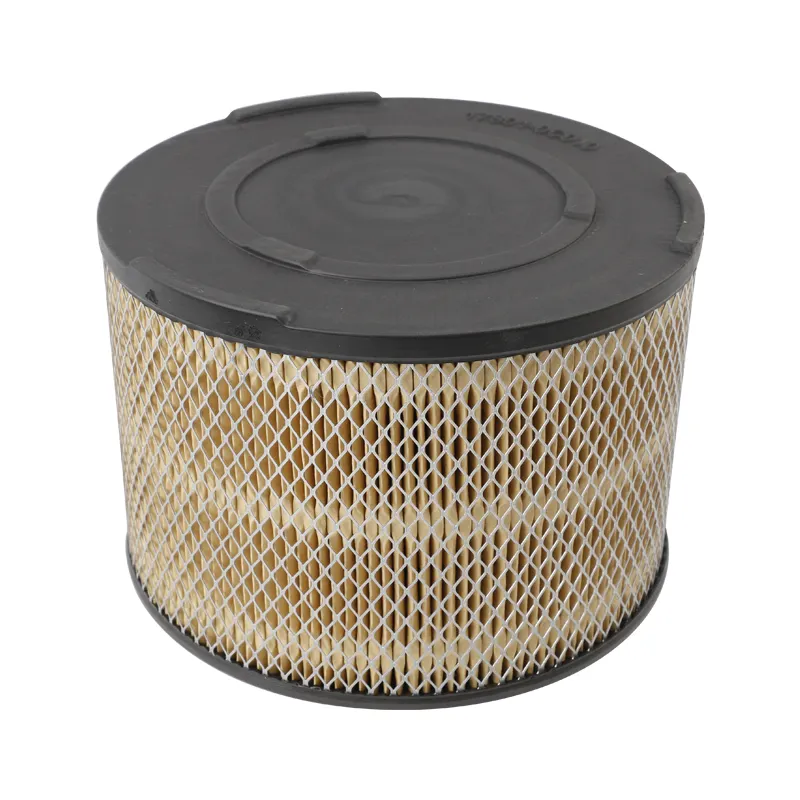Aug . 05, 2024 17:01 Back to list
The Importance of Regularly Replacing Your Tesla Cabin Filter for Optimal Air Quality
The Importance of Tesla Cabin Filters Ensuring a Clean Driving Environment
In the realm of electric vehicles, Tesla stands out not only for its cutting-edge technology and performance but also for its commitment to ensuring a healthy and pleasant driving experience. One of the unsung heroes of this experience is the cabin filter, which plays a crucial role in maintaining air quality inside Tesla vehicles. As electric vehicles become increasingly popular, understanding the importance of the cabin filter can help Tesla owners maximize their driving experience and prolong the life of their vehicles.
What is a Cabin Filter?
A cabin filter is a component in a vehicle's heating, ventilation, and air conditioning (HVAC) system that helps to filter out harmful pollutants, allergens, and unpleasant odors from the air entering the cabin. Tesla's cabin filters are designed to capture dust, pollen, smog, and other particulate matter, providing a cleaner, safer environment for passengers. Given the growing concerns about air quality in urban areas, the function of the cabin filter is more critical than ever.
How Does the Tesla Cabin Filter Work?
Tesla employs a high-efficiency particulate air (HEPA) filter in its models, which is particularly effective in trapping tiny particles. This technology ensures that the air being circulated within the vehicle is free from dust, mold spores, and even bacteria. In essence, the cabin filter acts as a barrier against outdoor pollutants, making it essential for those who suffer from allergies or respiratory issues.
Moreover, Tesla's advanced Active Charcoal Filtration System goes a step further by adsorbing toxic gases and odors, ensuring that the air quality inside the cabin remains pristine, regardless of the external environment. This is especially beneficial in urban settings where vehicle emissions and industrial pollution can significantly impact air quality.
The Impact of a Clean Cabin Filter
tesla cabin filter

A properly functioning cabin filter is crucial for not only the health and safety of passengers but also the overall performance of the vehicle. A clogged or dirty cabin filter can negatively affect the HVAC system, leading to reduced airflow and increased strain on the system. This can result in more energy consumption and decreased battery efficiency, which is particularly important for Tesla owners who are invested in maximizing their vehicle's range.
Furthermore, a clean cabin filter contributes to a more pleasant driving experience. It mitigates unpleasant odors and ensures that the air inside the vehicle is fresh and invigorating. This is particularly important during long journeys or in areas with heavy traffic, where air quality can quickly deteriorate.
Maintenance and Replacement
To maintain optimal air quality and system performance, Tesla recommends checking the cabin filter regularly and replacing it as needed. Depending on driving conditions, the filter may need to be replaced every 12,000 to 15,000 miles. For Tesla owners in polluted environments or those who frequently drive with the windows down, more frequent checks and replacements may be necessary.
Replacing the cabin filter is a simple process that can often be performed by the owner, although professional assistance is always available through Tesla's service centers. Keeping the cabin filter clean and functioning is a small but significant aspect of vehicle maintenance that contributes greatly to the overall driving experience.
Conclusion
In conclusion, the cabin filter is an integral component of a Tesla vehicle, contributing to a clean and healthy driving environment. By effectively filtering out harmful pollutants and allergens, the cabin filter enhances passenger comfort and well-being. As electric vehicles become more commonplace, awareness of the importance of such components will help owners take better care of their vehicles and ensure a superior driving experience. Regular maintenance of the cabin filter is a small price to pay for the benefits of cleaner air and enhanced vehicle performance.
-
Toyota Corolla Hatchback Cabin Air Filter – High Efficiency & Easy Installation
NewsJul.08,2025
-
Premium Canister Fuel Filter Supplier High Quality Oil Filtration Solutions
NewsJul.08,2025
-
Premium Car Filter Oil Solutions Leading Car Oil Filter Exporter Hyundai Car Oil Filter Exporters
NewsJul.08,2025
-
Buy 17x21x1 Air Filter – Improve Air Quality & HVAC Efficiency Affordable Air & Cabin Air Filter Cost
NewsJul.07,2025
-
High-Performance Filter Element Fuel – Durable, Efficient & Cost-Effective Solutions
NewsJul.07,2025
-
High-Quality Engine Filter and Cabin Filter for Superior Airflow Affordable Cabin and Engine Air Filter Cost
NewsJul.07,2025


